Standards – “A Booster not a Burden”
Standards are developed and agreed upon by people who are experts in their own area of specialty, with
reference to manufacturing and supplying products, managing a process, or delivering a service. They are
powerful tools that organizations across the globe use to drive innovation, improve performance and efficiency.
The International Organization for Standardization (ISO) recently interviewed Tatiana Valovaya, the Director
General of the United Nations Office in Geneva (UNOG). In the interview, she stressed on the importance of
standards in implementing the UN’s Global Agenda and its 17 Sustainable Goals (SDG’s)
Ms. Tatiana remarked that: “the global pandemic, climate change, economic and social inequities, gender
inequality…All these things are global challenges to which we really have to find multilateral, global solutions”.
She stated that “the UN Secretary-General has said several times that we need inclusive networking and
integrated multiliteracies, because international decision making now includes not only the voices of Member
States, represented by their governments, but also of local, regional and international organizations (such as ISO),
non-governmental entities, the private sector and others who are often overlooked, such as young people and
women. We have to offer everybody well-balanced decisions and we have to fully understand the consequences
of these decisions”.
Ms. Tatiana went on to express her belief in the need for Standards to assist tackling these global issues as a part
of this multilateral response. Take for instance climate change, it can only be fought with standards because
there is a whole range of standards designed to help specific industries become more climate-friendly.
“Standards will provide us with very good instruments that the Member States can use in their respective
countries to help collectively reduce our footprint on the environment. So, of course, standards need to be part
of any multilateral suggestions”.
Ms. Tatiana believes that standards as developed by ISO are becoming increasingly more important towards
reaching our goals. The pandemic has made the 2030 Global Agenda more relevant than ever and we must all
reach our goals. The common perception is that ISO standards are only related to very technical topics, but they
are so much broader than that. In fact, there are International Standards for every SDG and hence play a crucial
role in global development.
“Standards should not be perceived as a burden but as a booster” (Tatiana Valovaya, Deputy Director General of the UNOG)
The recent G20 conference held in Rome also had leaders of the world’s 20 biggest economies stress on the importance of
standards in areas such as health, finance, transport and travel, public health, digital economy, higher education and research.
The leaders recognized the importance of technology and innovation as key enablers for the global recovery and sustainable
development in an inclusive, open, fair and non-discriminatory digital economy allowing businesses and entrepreneurs to thrive and
protecting consumers while addressing privacy, data protection, intellectual property rights, and security challenges.
“We commit to reinforce our actions and international cooperation towards the digital transformation of production, processes,
services and business models, also through the use of consensus- based international standards and the improvement of
consumer protection, digital skills and literacy” (G20 Leaders)
International Standards establish policies and procedures, protocols, systems, networks and infrastructure to support organization
and global development, for example:
The ISO 9001:2015 Quality Management System enables an organization to improve overall performance and efficiency by ensuring
that the systems and processes an organization has in place not only meet customer requirements but continuously strive to
exceed customer expectations. The underlying rationale being that if an organization can understand the current and future needs
of its customers and other stakeholders, sustained success is inevitable.
The ISO 14001: 2015 Environmental Management System enables an organization to identify, manage, monitor and control their
environmental issues relevant to its operations. This system is suitable for any organization and can easily be adapted into any
existing management system.
The ISO 45001 Occupational Health and Safety System serves as a useful instrument to enable an organization proactively improve
its occupational Health and Safety performance regardless of its size, type or nature of business.
The ISO/IEC 27001 Information Security Management System provides a framework that any organization can implement to
securely manage sensitive information. The standard focuses on risk assessment and risk mitigation; finding out what potential
problems could happen to the information and then defining what needs to be done to prevent such problems from happening.
The ISO/IEC 20000 1:2018 IT Service Management Systems ensures an organization’s processes are aligned with international best
practice, as well as the needs of the organisation itself. This standard helps organisations benchmark how their managed services
are delivered, and how they can measure the service levels and assess their performance. This includes the planning, design,
transition, delivery and improvement of services to meet the service requirements and deliver value.
The ISO 22301 Business Continuity Management System enables an organization to put in place policies and procedures to protect
against, reduce the likelihood of occurrence, prepare for and respond to and recover from disruptive incidents when they arise.
The requirements specified in the standard are generic and applicable to any organization regardless of the type, size and nature of
organization

